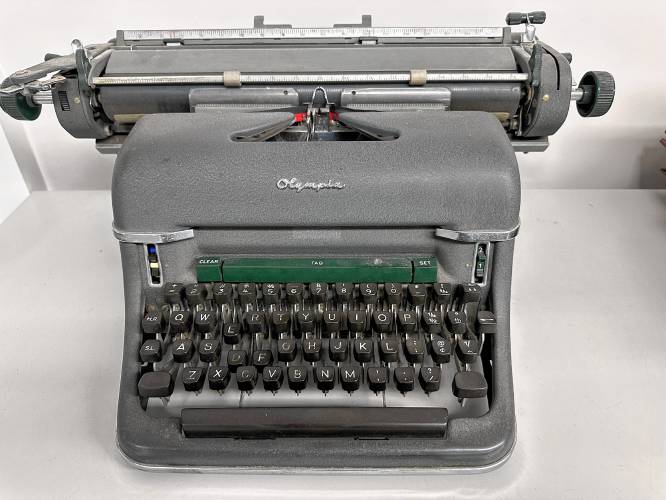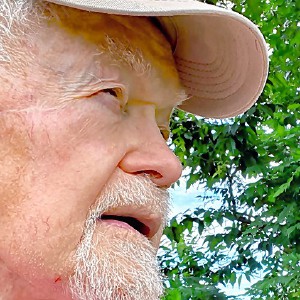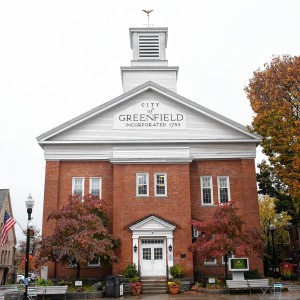My Turn: We need community care, not self-care

STAFF FILE PHOTO STAFF FILE PHOTO
| Published: 12-06-2024 9:16 PM |
It is not time for a spa day.
Self-care. Me time. Wine o’clock.
Pants that make your butt look fabulous.
None of that is going to help.
Robert Putnam tried to warn us in 2000 with his book “Bowling Alone,” early in the crisis of American loneliness, but we didn’t listen. The allure of ourselves was too great.
Now look where we are.
Crisis is not an exaggeration. The surgeon general’s report notes that more than half of all adults are lonely, with the highest rates of loneliness among younger adults. Along with that loneliness is a staggering loss of faith in each other and in the basic institutions that make our country function.
I have to admit, my faith in us is at an all-time low.
Article continues after...
Yesterday's Most Read Articles
We are turning in to ourselves, and we are not satisfied with what we find. For a nation steeped in individualism, you would think we would like our alone time more.
But humans are social creatures, programmed to form community, friendships, and to fall in love. With notable exceptions, we do not flourish in solitude.
This lack of connection is literally killing us. People with fewer, or no, social connections die sooner. They pay more in health care. Loneliness can result in greater rates of dementia.
It’s possible that the greatest impact is on our young people.
Particularly our young men.
Men, even young men, have fewer friendships than they did in the 1990s. Some men report having no close connections at all. And they are struggling to find romantic relationships.
You might, perhaps unkindly, think that these young men are undeserving of love. These friendless isolates.
If you’ve never been to a place where young men have no options, no entry into a future where they could see happiness for themselves, you might not know the particular danger that we are leading ourselves to because of this lack of connection.
Lonely, isolated, hopeless men find solace in people who tell them that they have been robbed, that they are owed, that they are worthy, even when they can’t see their own worth. They feel the pull of hateful radicals like Andrew Tate, who assures them not that they deserve love, but that they are owed sex. And then shows them how to exploit women for it.
The uncomfortable truth is that we did this. We lost touch with our neighbors.
We stopped going to community events, softball games, bingo night, church suppers, dinners with friends.
We turned inward, onto our phones, away from our towns, away from people who needed us.
And our collective loneliness has led to the greatest polarization in almost 100 years.
After this election I was not just angry, but afraid. I couldn’t understand how half of this country could vote for a man who lied, and cheated, and promised to go after his enemies. I blamed them.
I didn’t blame me.
The thing that is going to save us isn’t that anger.
We need to dig in, to actively support our communities, whatever those communities are. But we also need to reach across our communities to people who are not like us, who don’t think like us.
We don’t need self-care. We need community care.
Actively participating in our communities helps reestablish the ties that make our country function, before it ceases to function at all. And it doesn’t have to be Herculean.
This fall, the Easthampton vineyard, Glendale, asked people to help them harvest their grapes. I went three times. Glendale can’t hire workers to harvest. They’ve tried. So they ask the community to help them. Without community help their business would fail.
In return they gave us fresh local coffee and donuts, a lovely lunch and a bottle of their wine. We gave them four hours of physical labor.
But it was collectively participating in a shared goal that made me go back for the second and third time. They needed us. We need them. This is true with every small business in our region. The help might not be as physical or aesthetically pleasing as picking red grapes in the October sun, but without our support our local restaurants close. Without our help, donations and volunteering, our food pantry can’t serve the members of our community who are food insecure.
And helping our communities, helping people, makes us happier.
It seems so simple that I can’t quite remember what makes it so difficult. Lack of community participation makes us lonely. Loneliness leads to isolation, depression, lack of trust, anger, and division.
Division leads us here. Where half the country doesn’t trust the other half.
Where young men shout “Your body my choice” to young women. Where young women swear off men. Where we repeat this cycle until our society is irreparably broken.
This week, pick one way you can engage, one way, however small, that you can help make our community stronger. The grape harvest won’t be in for another 11 months. But the food pantry is open every day.
Or, as Robert Putnam suggested 24 years ago, join the bowling league.
Community care will have a real positive impact. On you and on other people. And a stronger community will do better in four years.
Morgan Sheehan is an author who lives in Hatfield.






 Connecting the Dots: It comes to us all
Connecting the Dots: It comes to us all Ira Helfand: A bomb survivors warn of nuclear danger
Ira Helfand: A bomb survivors warn of nuclear danger Michelle Spaziani: High municipal employee turnover merits immediate review
Michelle Spaziani: High municipal employee turnover merits immediate review My Turn: Massachusetts’ health system is failing
My Turn: Massachusetts’ health system is failing
